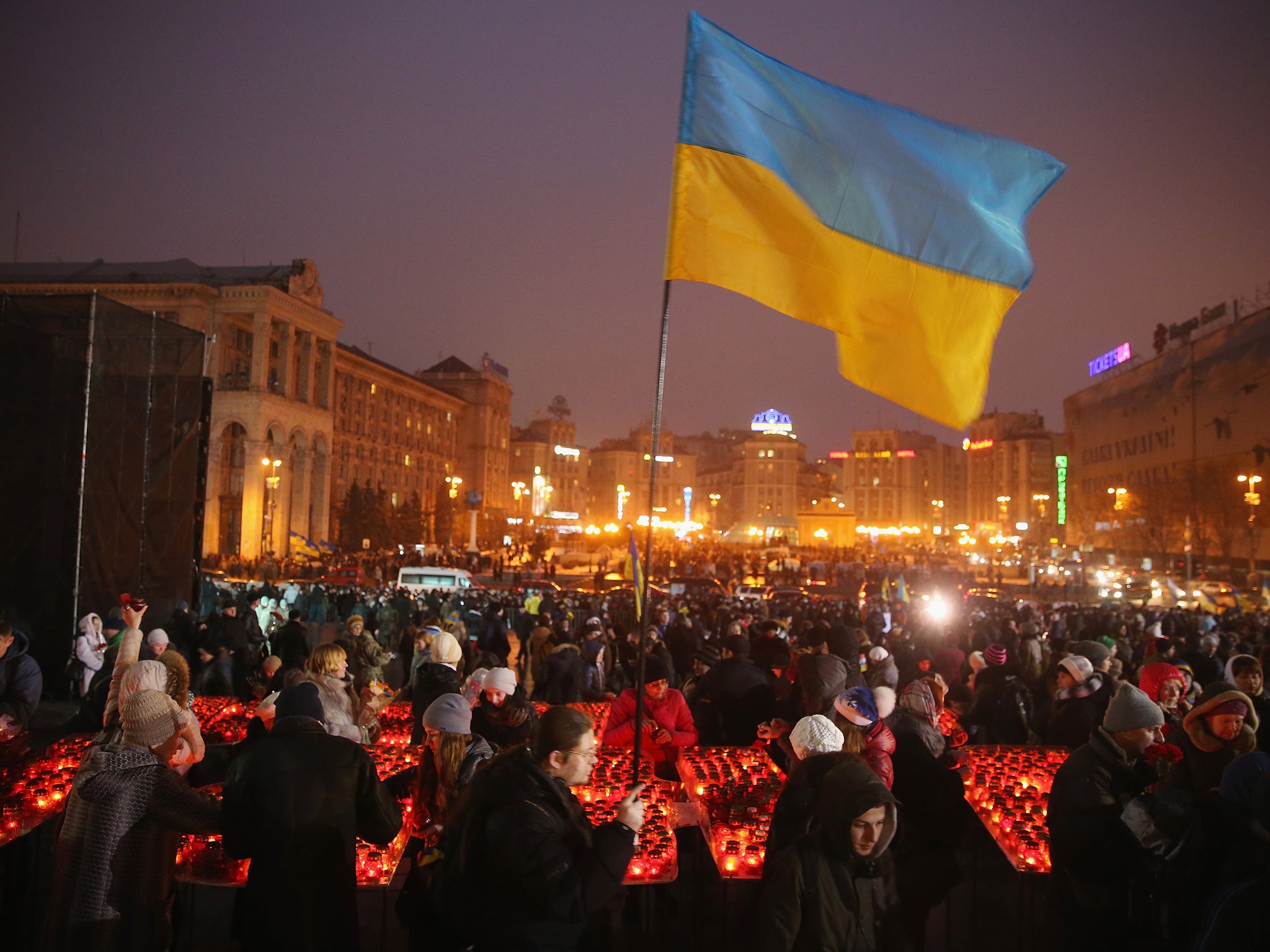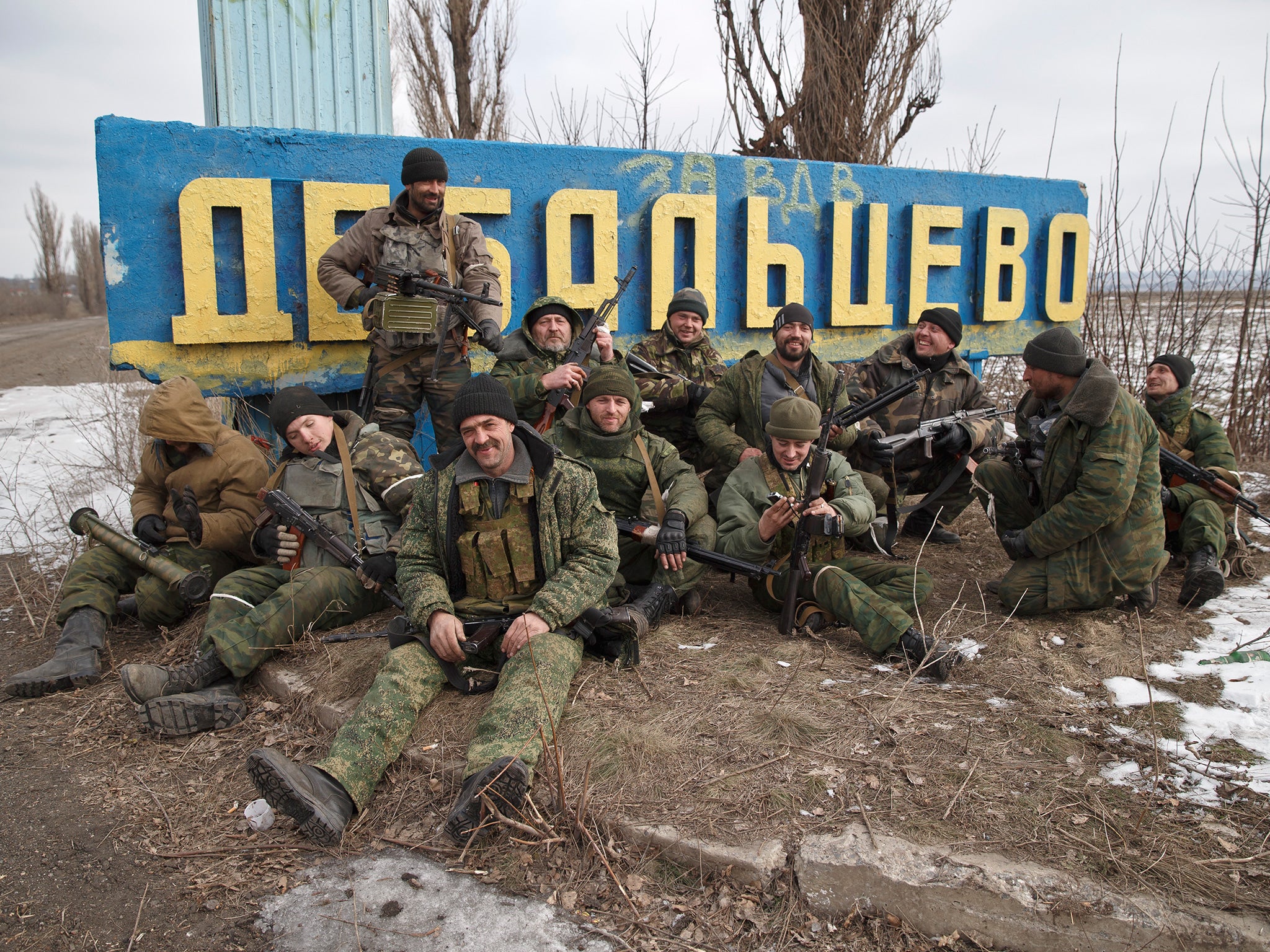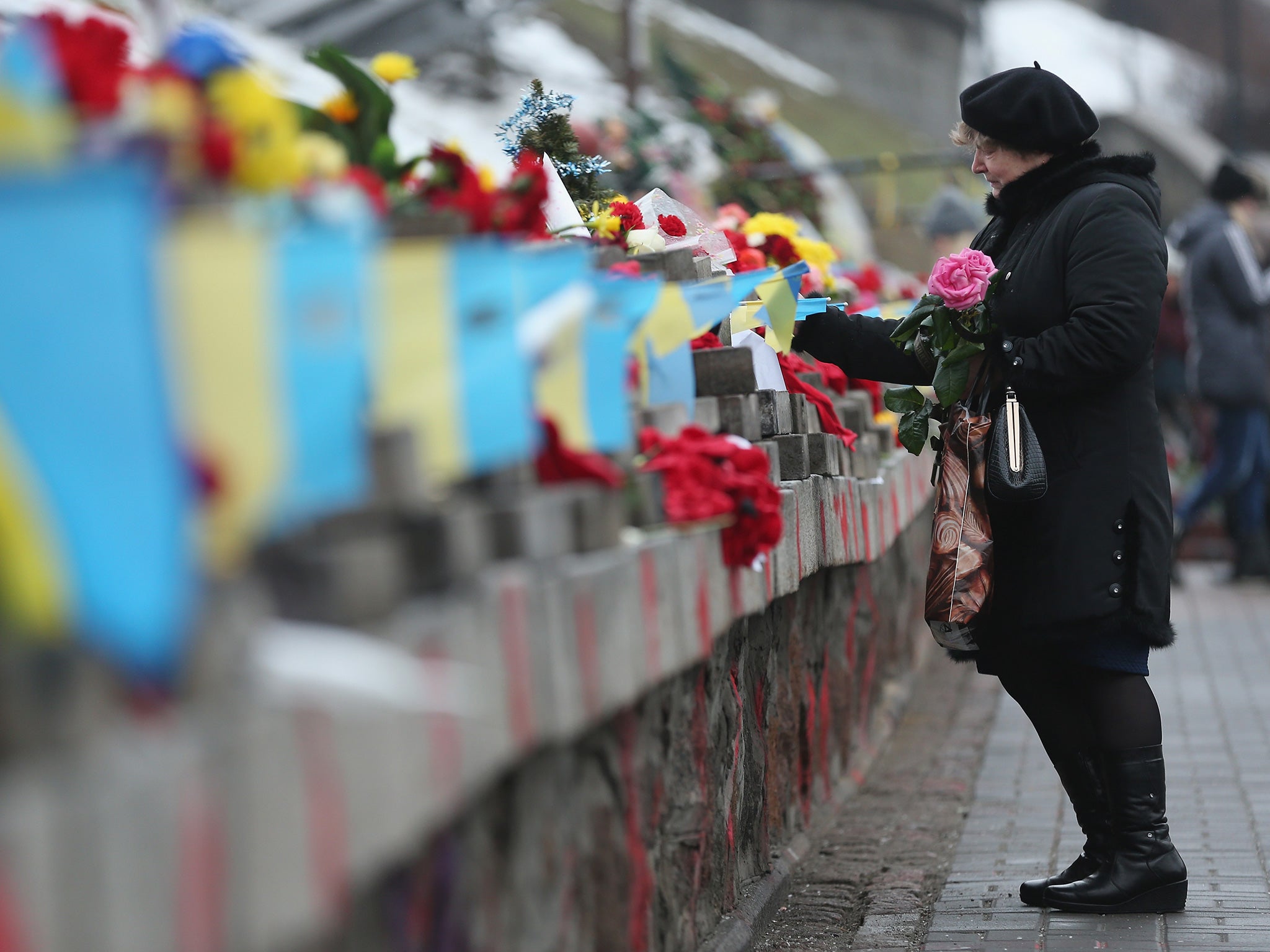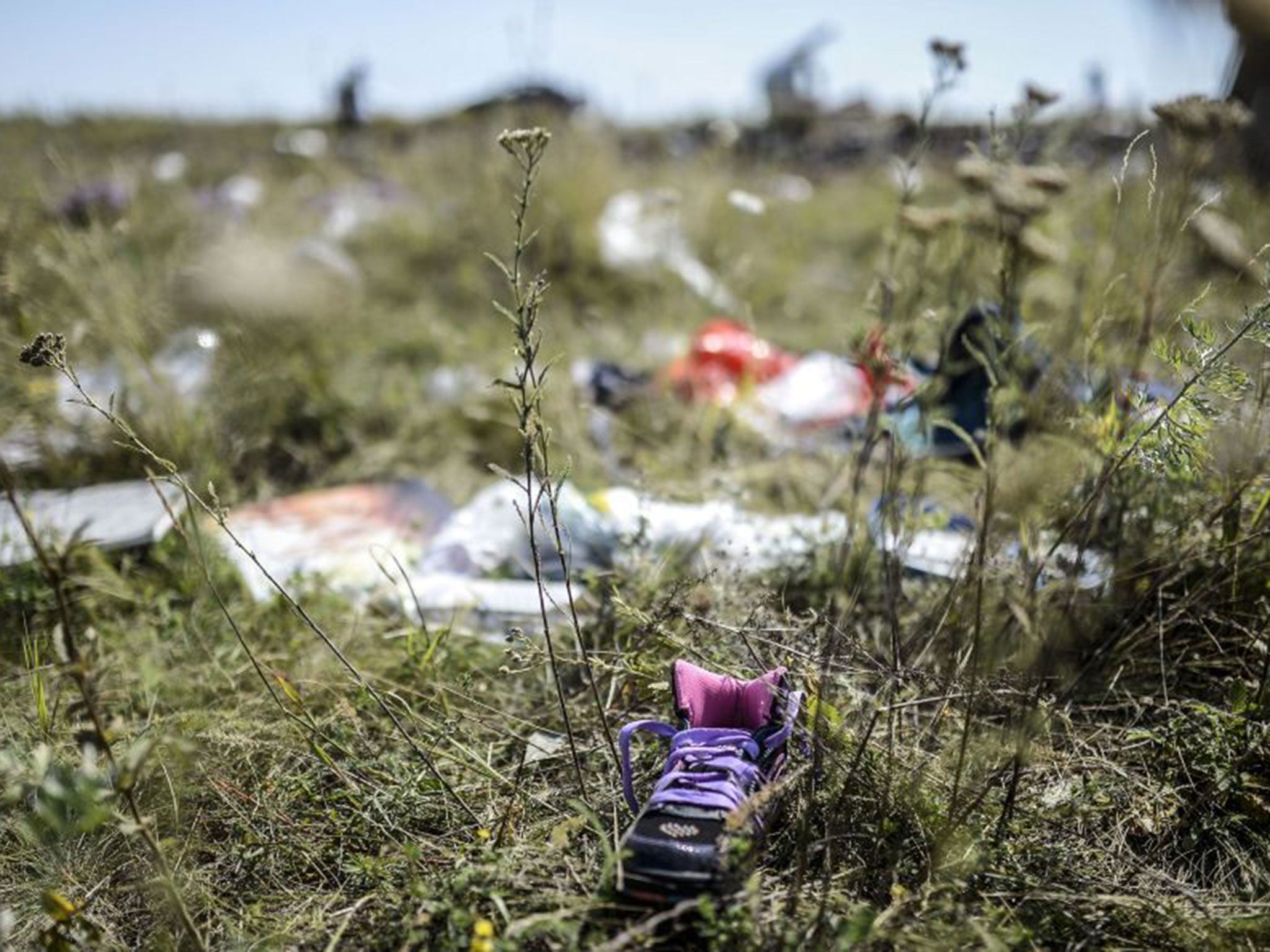Ukraine crisis: 'One miscalculation, and Britain faces an existential threat to our whole being...'
As Ukraine looks back bitterly on the most troubled year in its post-war history, peace seems further away than ever

Your support helps us to tell the story
From reproductive rights to climate change to Big Tech, The Independent is on the ground when the story is developing. Whether it's investigating the financials of Elon Musk's pro-Trump PAC or producing our latest documentary, 'The A Word', which shines a light on the American women fighting for reproductive rights, we know how important it is to parse out the facts from the messaging.
At such a critical moment in US history, we need reporters on the ground. Your donation allows us to keep sending journalists to speak to both sides of the story.
The Independent is trusted by Americans across the entire political spectrum. And unlike many other quality news outlets, we choose not to lock Americans out of our reporting and analysis with paywalls. We believe quality journalism should be available to everyone, paid for by those who can afford it.
Your support makes all the difference.The West faces a new and dangerous era of “constant competition” with Russia that carries a possible “existential threat to our whole being”, Britain’s most senior commander in Nato has warned.
Speaking as events on the grounds showed more evidence that the supposed ceasefire in Ukraine is in danger of collapse, General Sir Adrian Bradshaw, the Deputy Supreme Allied Commander Europe, said the West was facing twin threats from Russian President Vladimir Putin: modern “hybrid warfare” – the use of cyber attacks, political agitation and sabotage – combined with old-style Soviet land-grab tactics.
Saying that Nato needs to look at a new strategy to counter the “combination of subversion and coercion” used by its former Cold War adversary in Crimea and eastern Ukraine, Sir Adrian cautioned that traditional military threats still exist.
“The danger is that Russia might believe that the large-scale conventional forces which she has shown she can generate at very short notice – as we saw in the snap exercise that preceded the takeover of Crimea – could in future be used not only for intimidation and coercion but potentially to seize Nato territory,” he said. He added that the threat of Russia expanding its strategy could be a tactic to keep Ukrainian forces at bay.
He added: “This use of so-called escalation dominance was of course a classic Soviet technique. The threat from Russia and the risk it brings of a miscalculation resulting in a strategic conflict, however unlikely we see it as being right now, represents an existential threat to our whole being.”
The salvo by the former head of the SAS is the latest a series of warnings by senior Western political and military figures, as tensions with Moscow over the Ukraine civil war show no sign of subsiding.
Ukrainian officials said yesterday that artillery and mortar fire had hit the village of Berdyansk, near the strategically important port city of Mariupol, which is seen as a likely target for the rebels if they renew their offensive. Kiev also claimed Russia had moved 10 tanks and troops into Novoazovsk, near Mariupol.
Both sides insisted the other had violated the ceasefire repeatedly yesterday, and EU President Donald Tusk said there had been “more than 300 violations” of the ceasefire since it was supposed to have begun last weekend. “People are still dying,” he said. He was “consulting European Union leaders on the next steps” which would be designed to “increase further the costs of aggression on eastern Ukraine”.
Ukrainian President Petro Poroshenko showed no signs of trying to damp down feelings and instead claimed yesterday that a top Kremlin aide, Vladislav Surkov, had directed “foreign sniper groups” who killed protesters in Kiev during pro-European Union protests a year ago. Russia dismissed the idea as “nonsense”.

Nato officials still hope that the Russian-backed separatists will draw down their assaults following the capture of the strategic hub of Debaltseve, but they also express apprehension that another flashpoint may end the truce. Nato’s top military commander, US Air Force General Philip Breedlove, said he did not think the Minsk accord had ever taken effect. “It is a ceasefire in name only,” he said.
In his speech at the Royal United Services Institute, Sir Adrian said new tactics should be developed to counter Russia’s strategy in Ukraine. This would include stabilising civic institutions in countries along its western borders and countering Moscow’s propaganda, as well potentially taking part in traditional military action.
The British Army has announced the formation of the 77 Brigade, which will use unconventional warfare, including social media, “to fight in the information age”. The 2,000-strong unit, nicknamed the “new Chindits” after the British and Indian force which used unconventional tactics during the Second World War, will be based near Newbury, Berkshire.
Yesterday a parliamentary committee lambasted the UK Government for “sleep-walking” into the crisis. But David Cameron dismissed the suggestion, saying: “I don’t accept this. The responsibility for what has happened in Ukraine lies absolutely squarely with Vladimir Putin and Russia. They destabilised and effectively invaded this country and have caused all the problems that have happened since.”
There have been comparisons between the current situation in Ukraine and the build-up to both world wars.
Tim Ripley, a defence analyst, said it was “pretty obvious” that the pro-Russian forces wanted to take over the strip of land between the rebel-held east of Ukraine and Crimea, which was annexed by Russia last year. “If this is [a rerun of] 1939, Putin will have his tanks in Kiev by Easter,” Mr Ripley said.
He said Ukraine would stand little chance. “The unwillingness of the West to provide military assistance to Ukraine puts in doubt its existence in its current form. Their ability to withstand more of this must be in question. Their army is being chewed to bits. Their air force is gone, shot out of the sky. It’s nowhere to be seen.”
Timeline: Ukraine's year of pain
21 November 2013
Ukrainian President Viktor Yanukovych reneges on an EU trade deal in favour of closer ties with Russia, provoking protests in the capital which steadily gain in strength.
20-21 February 2014
Clashes at Maidan – the Kiev central square where protesters had set up camp – leave 88 people dead.

22 February
President Yanukovych flees the country. Protest leaders and politicians agree to form a new government and hold elections. Ex-prime minister Yulia Tymoshenko is freed from jail.
27 February
Pro-Russian militias seize government buildings in Crimea.
16 March
In a referendum condemned as illegal by the EU and the US, Crimea votes to secede from Ukraine and join Russia.
24 March
Russia expelled from G8.
6 April
Pro-Russian rebels seize government buildings in Donetsk, Luhansk and Kharkiv.
7 June
Petro Poroshenko is sworn in as Ukraine’s President.
27 June
EU signs association agreement with Ukraine.
17 July
Malaysia Airlines flight MH17 is shot down over eastern Ukraine, killing all 298 people on board. Ukrainian intelligence officials blame a surface-to-air missile fired by rebels.

22 August
A Russian aid convoy of more than 100 lorries enters eastern Ukraine.
5 September
Ukraine and pro-Russian rebels sign a truce in Minsk.
16 September
Ukraine and EU ratify association agreement.
24 September
Nato reports “significant” Russian troop withdrawal.
26 October
Pro-Western parties win parliamentary elections.
2-3 November
Separatists in eastern Ukraine elect new leaders.
23 January 2015
UN says death toll from conflict exceeds 5,000 and is possibly much higher.
31 January
Major separatist offensive in Donetsk region, following seizure of the airport, causes the collapse of Minsk peace talks.
12 February
Second Minsk agreement signed, following intervention by Angela Merkel and François Hollande.
15-16 February
Russian forces take the key railway town of Debaltseve.
Join our commenting forum
Join thought-provoking conversations, follow other Independent readers and see their replies
Comments